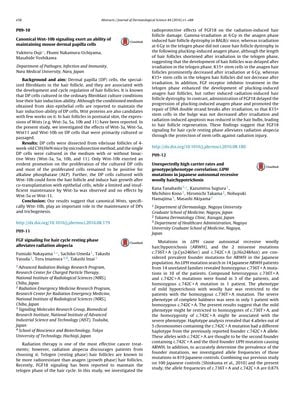FGF Signaling for Hair Cycle Resting Phase Alleviates Radiation Alopecia
September 2016
in “
Journal of Dermatological Science
”
FGF18 fibroblast growth factor 18 radiation alopecia telogen phase anagen phase K15+ stem cells gamma-irradiation hair follicle dystrophy FGF receptor inhibitor DNA repair apoptosis hair follicle regeneration radiation hair loss resting phase growth phase stem cells radiation damage hair damage cell death hair regrowth

TLDR FGF18 treatment during hair's resting phase can protect against hair loss from radiation.
The study from 2016 investigated the radioprotective effects of FGF18 on hair follicle damage caused by gamma-irradiation. It was found that telogen (resting phase) hair follicles, which are more radioresistant than anagen (growth phase) hair follicles, did not show dystrophy when irradiated at 6 Gy. However, the development of hair follicles was delayed post-irradiation in the telogen phase. The study revealed that K15+ stem cells in the anagen hair follicles significantly decreased after irradiation, while those in the telogen hair follicles did not. Treatment with an FGF receptor inhibitor during the telogen phase induced hair follicle dystrophy after radiation, whereas FGF18 administration delayed the anagen phase and promoted DNA repair, preserving K15+ stem cells and reducing radiation-induced apoptosis in hair bulbs. This led to hair follicle regeneration. The findings suggest that FGF18 signaling during the hair cycle's resting phase can alleviate radiation alopecia by protecting stem cells from radiation damage.


